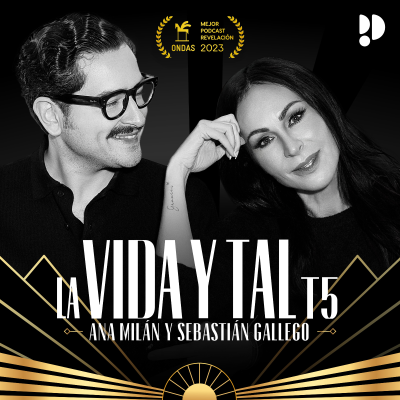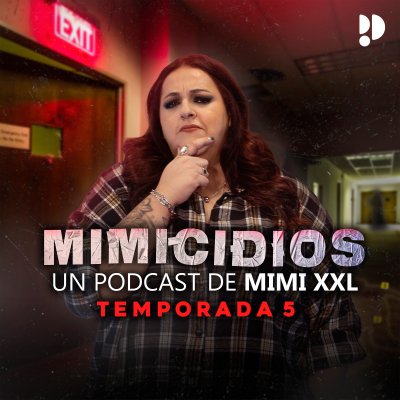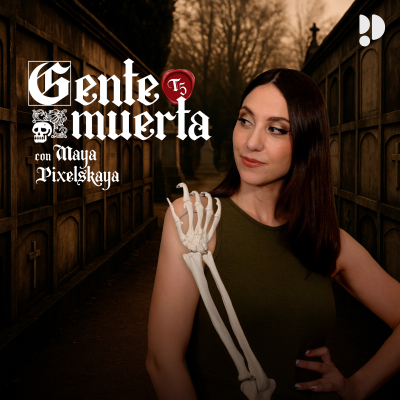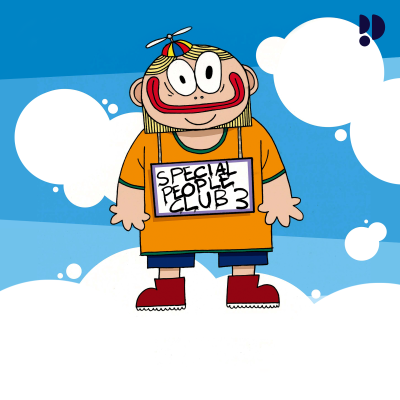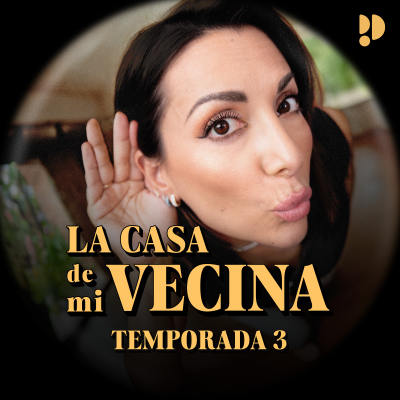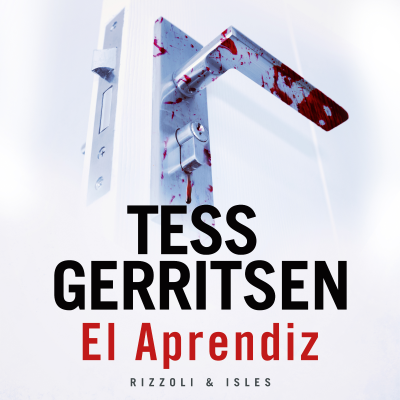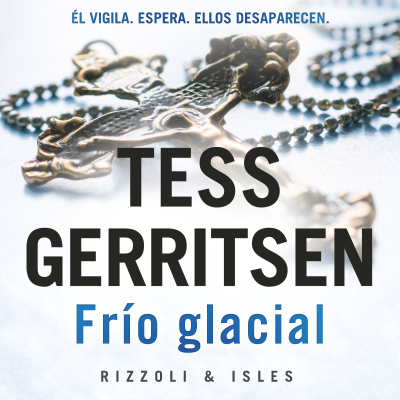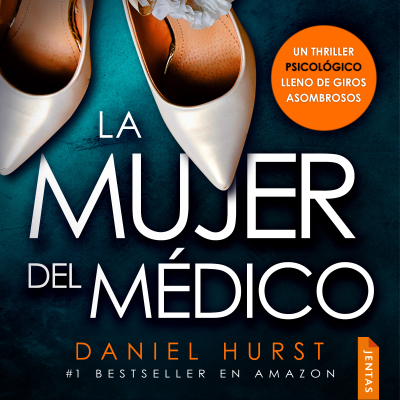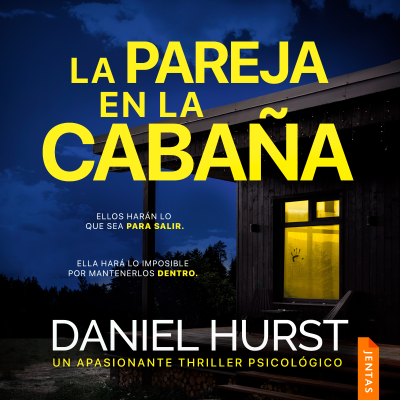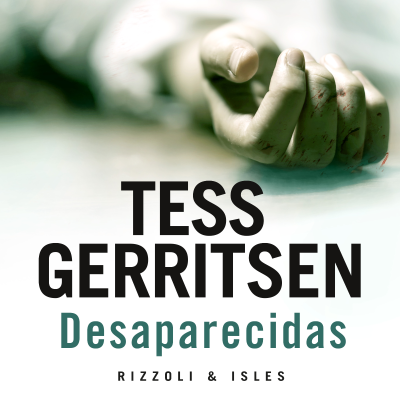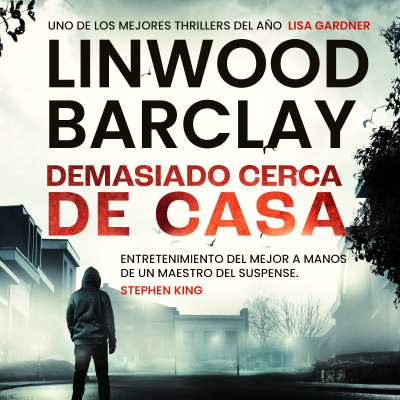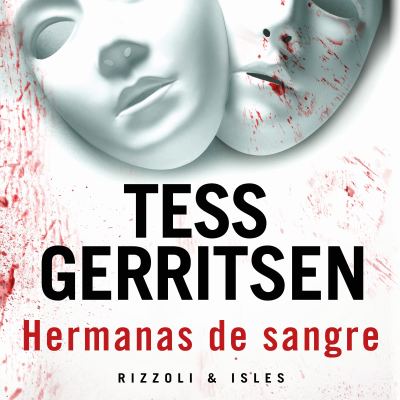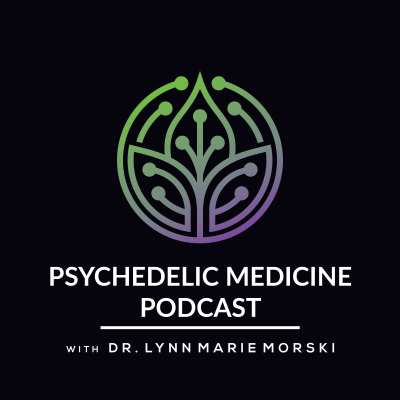
Psychedelic Medicine Podcast with Dr. Lynn Marie Morski
Podcast de Lynn Marie Morski, MD, JD
Disfruta 90 días gratis
4,99 € / mes después de la prueba.Cancela cuando quieras.
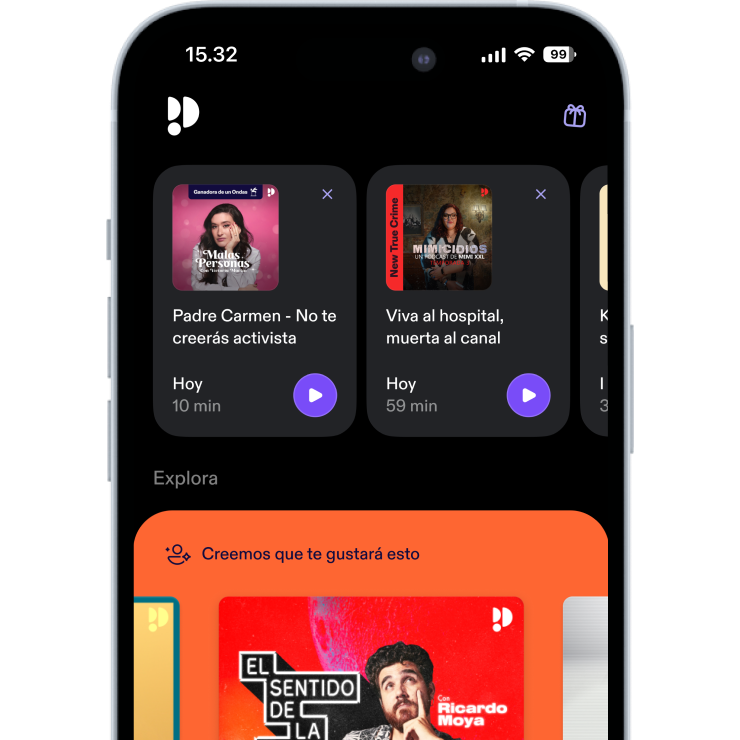
Más de 1 millón de oyentes
Podimo te va a encantar, y no sólo a ti
Valorado con 4,7 en la App Store
Acerca de Psychedelic Medicine Podcast with Dr. Lynn Marie Morski
Curious about the possible therapeutic benefits of psychedelic medicines? The Psychedelic Medicine Podcast with Dr. Lynn Marie Morski has you covered with the latest in scientific research, medical practices, and legal developments involving these substances and their incredible therapeutic potential. Covering the full range of psychedelic therapies, including psilocybin, MDMA, ketamine, LSD, ayahuasca, ibogaine, and more, this podcast serves as an auditory encyclopedia of information for anyone interested in learning about the safe, therapeutic uses of these medicines.
Todos los episodios
183 episodiosIn this episode, Seth Mehr, MD joins to share his expertise on safety planning prior to a patient undergoing psilocybin therapy. After a 20 year career as an Emergency Medicine physician, Seth founded Cascade Psychedelic Medicine in 2021, treating clients with depression, anxiety and PTSD with psychedelic ketamine therapy. He also serves as the Health & Safety Director and a state licensed psilocybin facilitator at the Innertrek service center in Portland, Oregon. In this conversation, Dr. Mehr outlines key risk categories for psilocybin therapy: medical conditions, medication interactions, and mental health history. He emphasizes the importance of individualized safety planning over binary yes/no decisions. Dr. Mehr discusses specific considerations such as cardiovascular issues, diabetes, serotonergic medications, substance use disorders, suicidal ideation, and family history of psychosis. The conversation also covers strategies for mitigating risk, including delaying treatment, contingency plans, improving support systems, and ensuring informed consent. Throughout, Dr. Mehr stresses a collaborative, nuanced approach that balances potential benefits with careful preparation and personalized care. In this episode, you'll hear: * Stories from Dr. Mehr’s practice of helping patients with different conditions and histories ensure safe psilocybin experiences * Interactions between GLP-1 agonists and psilocybin * How Dr. Mehr works with patients who have family histories of psychosis * Harm reduction practices which leverage other psychedelics or non-psychedelic interventions to help prepare a client for a psilocybin session * Why insulin dependent diabetes can be a contraindication for psychedelic therapy * What medication combinations can increase the risk of serotonin toxicity with psilocybin * Supporting clients experiencing spiritual emergency following psilocybin therapy * Safety considerations when working with clients who have a history of seizures * The importance of having contingency plans if medical emergencies arise during psilocybin therapy * The intricacies of providing fully informed consent for psychedelic therapy Quotes: “There is some evidence now that taking a single serotonergic agent—say, taking Lexapro—and no other medications that increase the risk of serotonin toxicity seems safe where I am not at this point recommending that people stop, skip, or taper a single SSRI in preparation for a psilocybin session due to safety.” [12:20] “One of the difficulties with making these decisions or speaking with some confidence or authority on the matter is that the clinical trials that have been done largely exclude people with lots of conditions—family history and specifically first degree relatives with history of psychosis and bipolar disorder… So we have anecdotal evidence, we have population based surveys to go by. And so when I talk to clients about this, I speak from a place of humility.” [27:30] “I always emphasize to clients that while we're talking about a specific safety issue like serotonin toxicity, we don't want to trade that for psychological instability and crisis and declare success because we've helped somebody taper off of a medication that seems less safe and now they aren't sleeping, they're agitated, they're depression is worse, their suicidality is worse. So we have to take a holistic approach to this and consider the totality of what's happening with that client.” [36:45] “There are so many different components to trying to set somebody up for success rather than a yes/no, black and white approach [to psilocybin therapy].” [48:44] Links: Cascade Psychedelic Medicine website [https://www.cascadepsychedelicmedicine.com/] InnerTrek website [https://www.innertrek.org/] Managing Medical Risk In Patients Seeking Psilocybin Therapy CME/CE Course [https://psychedelicmedicineassociation.org/education/managing-medical-risk-in-patients-seeking-psilocybin-therapy/] Psychedelic Medicine Association [https://psychedelicmedicineassociation.org/] Porangui [https://www.porangui.com/]
In this episode, Monnica T. Williams, PhD, ABPP joins to discuss how psychedelics may help alleviate mental health impacts of racial trauma. Dr. Williams is a licensed clinical psychologist and professor at the University of Ottawa in the School of Psychology, where she is the Canada Research Chair in Mental Health Disparities. In this conversation, Dr. Williams begins by highlighting the daily stress and trauma experienced by people of color, likening it to PTSD. She discusses a survey her team conducted which revealed that many people of color use psychedelics to manage racial trauma, showing significant reductions in stress, depression, and anxiety. Additionally, Dr. Williams emphasizes the importance of a safe environment and culturally competent therapists. In closing, she discusses ongoing research at this intersection and the need for more funding and awareness in this field. In this episode, you'll hear: * How racial trauma manifests as conditions like PTSD, depression, and anxiety * The importance of an intersectional perspective * Current treatments for mental health struggles stemming from racial trauma * Results from Dr. Williams’ research into psychedelic use amongst people of color * The importance of safe and supportive settings for psychedelic experiences * How shared life experiences between a therapist and client can strength the therapeutic alliance and improve outcomes * Why bias training is particularly important in the context of psychedelic therapy Quotes: “People of color who live in these white dominated Western contexts are continually bombarded by subtle —and not so subtle—messages about their worth, about their standing in society, about their intelligence, their character, on and on and on and on. And so really the daily onslaught just wears and wears away at people, and the stress of that can actually become traumatizing.” [1:49] “People heal from trauma when someone witnesses their pain, right? When people can compassionately witness your pain and join in it with you—this is the basis behind all therapeutic approaches for trauma treatment.” [10:13] “We saw [from our survey study] that many, many people of color are using psychedelics to manage racism, often very quietly. But it seems for many people to be quite effective and quite helpful.” [11:53] “We looked at some separate psychedelics where we had enough people who described a specific one like psilocybin or LSD or peyote in some cases. And so we were able to look at those psychedelics separately and we didn't actually find a difference. It didn't seem to matter which psychedelic it was. It seemed that they were all, more or less equally effective.” [15:20] Links: Dr. Williams’ website [https://www.monnicawilliams.com/] Dr. Williams on X [https://x.com/DrMonnica] Dr. Williams on Instagram [https://www.instagram.com/drmonnica] Dr. Williams on LinkedIn [https://www.linkedin.com/in/monnicawilliams/] Dr. Williams’ study “Investigating the associations of acute psychedelic experiences and changes in racial trauma symptoms, psychological flexibility, and substance use among People with Racial and Ethnic Minoritized Identities in the United States and Canada” [https://www.monnicawilliams.com/articles/Haeny_PsychedelicsSubstanceUse_2023.pdf] Behavioral Wellness Clinic - Connecticut [https://www.bewellct.com/] Behavioural Wellness Clinic - Ottawa [https://www.bewellpsych.ca/] Masters Program in Psychedelics and Consciousness Studies at University of Ottawa [http://psychedelicstudies.ca/masters-program.php] Psychedelic Medicine Association [https://psychedelicmedicineassociation.org/] Porangui [https://www.porangui.com/]
In this episode, Robin Carhart-Harris, PhD joins to elucidate the intersection of psychedelics and neuroplasticity. Dr. Carhart-Harris is the Ralph Metzner Distinguished Professor in Neurology and Psychiatry at the University of California, San Francisco. Robin founded the Centre for Psychedelic Research at Imperial College London in April 2019, was ranked among the top 31 medical scientists in 2020, and in 2021, was named in TIME magazine’s ‘100 Next’ – a list of 100 rising stars shaping the future. Dr. Carhart-Harris begins by discussing the impact of psychedelics on neuroplasticity and mental health. He explains neuroplasticity as the brain's ability to change, emphasizing its role in mood disorders and substance use and describes how stress atrophies the brain, leading to mental illness. Dr. Carhart-Harris differentiates between neuroplasticity and neurogenesis, noting that while neurogenesis is limited in adults, neuroplasticity can be influenced by psychedelics like ketamine, psilocybin, and MDMA. In closing, he also discusses the entropic brain hypothesis, suggesting that increased brain entropy leads to richer subjective experiences. In this episode, you'll hear: * The relationship between neuroplasticity and “canalization” * Why homeostatic neuroplasticity may promote mental wellbeing * Differences between ketamine, MDMA, and serotonergic psychedelics in terms of neuroplasticity * The details of the entropic brain hypothesis * Psychedelics’ effect on the default mode network * The frontiers of research into psychedelics and neuroplasticity Quotes: “So changeability is what plasticity is. And neuroplasticity—that's the ability of the brain to change. Okay, and how is neuroplasticity related to mood disorders like depression and anxiety or substance use disorder or something like that? Well, that's a great question cause we don't have it entirely nailed down. But one of the most reliable findings in biological psychiatry is that stress atrophies the brain.” [2:47] “The main thing with ketamine is that the window of increased plasticity is brief… That makes sense because that reflects how ketamine seems to work therapeutically—that it provides relief somewhat short-term, unless it is twinned with, say, psychotherapy or you do repeat administration and get someone out of the rut they were in.” [22:15] “We’ve seen in people with depression, brain networks can become quite segregated from each other—they are ordinarily, they’re quite functionally separate and distinct—but that modularity might be a bit elevated in depression. But what we’ve seen with psilocybin therapy is that separateness between systems, that segregated quality of organization of brain networks, brain systems actually decreases after psilocybin therapy for depression. I’ll put it another way: the brain looks more globally interconnected after psilocybin therapy for depression and the magnitude of that… correlates with improvements.” [39:19] Links: Carhart-Harris Lab website [https://www.carhartharrislab.com/] Dr. Carhart-Harris on X [https://x.com/RCarhartHarris] Dr. Carhart-Harris’ 2025 article: “Neuroplasticity and psychedelics: A comprehensive examination of classic and non-classic compounds in pre and clinical models” [https://doi.org/10.1016/j.neubiorev.2025.106132] Dr. Carhart-Harris’ 2012 article: “Neural correlates of the psychedelic state as determined by fMRI studies with psilocybin” [https://doi.org/10.1073/pnas.1119598109] Dr. Carhart-Harris’ 2010 article with Karl Friston: “The default-mode, ego-functions and free-energy: a neurobiological account of Freudian ideas” [https://doi.org/10.1093/brain/awq010] Psychedelic Medicine Association [https://psychedelicmedicineassociation.org/] Porangui [https://www.porangui.com/]
In this episode, Dori Lewis, MA, MEd, LPC-S discusses the common myths and misconceptions surrounding psilocybin for healing. Dori is a psychotherapist, co-founder of Elemental Psychedelics, and owner of Reflective Healing in Fort Collins, CO, who specializes in psychedelic-assisted therapy, blending transpersonal psychology with spiritual practices. With experience facilitating ketamine sessions and training clinicians, she advocates for ethical standards in psychedelic medicine while championing a feminine-centered approach to facilitator training. The first myth that Dori addresses in this conversation is the idea that it is the psilocybin mushroom itself that does all the healing work. Contrary to this common misconception, Dori suggests that it is the client’s own initiative working in tandem with the mushroom that really spurs healing. She also emphasizes that there are not any set protocols for how often psilocybin should be taken for healing, instead suggesting that clients should be guided to attune to their own internal intuition to determine when a psilocybin journey may be particularly helpful. Another misconception Dori addresses is that healing with psilocybin can occur without causing deep transformations in one’s identity or shifts in one’s worldview. She suggests facilitators must be very transparent about these possible impacts to best prepare clients for these kinds of major changes that psilocybin can catalyze. In closing, Dori reiterates that clients should be supported and prepared to encounter intense emotional experiences with psilocybin, as some of the most difficult psychedelic journeys can actually be the most healing. In this episode, you'll hear: The biggest myths and misconceptions Dori encounters working with clients in her practice The importance of a relational understanding of psychedelic healing The specific types of trauma where psilocybin may be a particularly effective healing modality The training for psilocybin facilitators in Colorado under the Natural Medicines Program and the importance of scope of practice Why some people’s mental health gets worse before it gets better following a psilocybin experience What can cause lack of response to psilocybin therapy and how better preparation can often mitigate this Quotes: “Mushrooms are amazing and they can help us in our healing journey. But they are one tool in a mosaic of other tools that we can use to help ourselves heal and grow and change.” [6:54] “I don’t really know where this message came from—that mushrooms cure PTSD—but that is a huge myth. They can help—with certain types of trauma within the context of a healthy therapeutic relationship with a skilled provider, yes, at times when it is right. But ultimately the best medicine for trauma is going to be MDMA—and ketamine.” [18:18] “It is the responsibility of providers and facilitators to inform clients of the realistic expectations they should have for their [psychedelic] journeys—and that is also an ethical need and something that facilitators need to consider through an ethical lens.” [25:20] “There’s a lot to be said about the unique ways that mushrooms express through our bodies and through our minds and through our hearts that give us information about where we are at and where we need to work or continue to work in order to access the healing we so desire.” [37:34] Links: Dori on LinkedIn [https://www.linkedin.com/in/dori-g-lewis-5578b763/] Elemental Psychedelics on LinkedIn [https://www.linkedin.com/company/elemental-psychedelics/] Elemental Psychedelics website [https://www.elementalpsychedelics.com/] Previous episode: Integrating Challenging Psychedelic Experiences with Keith Kurlander, MA [https://youtu.be/ZOV5hs912Mc] Previous episode: The Challenging Psychedelic Experiences Project with Jules Evans [https://youtu.be/mJPBeAyQFJQ] Previous episode: The Dangers of "Ayahuasca Told Me…" with Jerónimo Mazarrasa [https://youtu.be/GNEdXHKUmzk] Psychedelic Medicine Association [https://psychedelicmedicineassociation.org/] Porangui [https://www.porangui.com/]
In this episode, Jodie NewDelman, PsyD joins to discuss the benefits and risks of leveraging psychedelics for professional growth. For over three decades, Dr. NewDelman has been an executive consultant, health system advisor, licensed psychologist, and clinical supervisor. She is also trained and certificated in psychedelic medicine and has been working with growth-oriented professionals developing greater alignment between their leadership roles at work and their personal lives. In this conversation, Dr. NewDelman discusses the typical struggles people experience in their professional lives and where psychedelic experiences may provide insight and empowerment to become more aligned with one’s work. She unpacks the psychological experience of being “stuck,” something that psychedelics may specifically help overcome. Beyond individualistic approaches to professional growth, Dr. NewDelman also discusses the importance of humanizing the workforce and how conscious leadership is crucial to achieve this goal. In closing, Dr. NewDelman warns against the danger of trying to implement radical changes after a psychedelic experience without sufficient integration, emphasizing the importance of a holistic approach to this work. In this episode, you'll hear: * Navigating feelings of imposter syndrome and experiences of marginalization * The importance of work life balance and how to psychedelic experiences can empower reflection on this topic * Why clear intention is crucial for leveraging psychedelic experiences for professional growth * The danger of spiritual bypassing after profound psychedelic experiences Quotes: “No matter who you are, you're going to have your own set of intentions. The intentions will be bespoke. And maybe you don't know the first or second time what you want to work on when you go into it—an experiential medicine session. But eventually we can narrow those themes down to what it is that we really need insight on.” [22:01] “if you need to focus on some nitty gritty, annoying detail [at work], no matter how transcendent your perspective is in your psychedelic medicine session, you still have to do the thing at work. You still have to make the practical changes. So we need to kind of stay tethered to reality in that way.” [38:58] “Our tendency is to avoid pain, right? We want to go away from the obstacles. And if psychedelics teach us nothing else, it's that we need to go through the storm. We need to turn toward the issue.” [40:25] Links: Essensuate website [http://essensuate.com/] Essensuate on Instagram [https://www.instagram.com/essensuate/] Essensuate on LinkedIn [https://www.linkedin.com/company/essensuate-integration/] Essensuate on Facebook [https://www.facebook.com/essensuate] What Are The Habits of Mind? - The Institute for the Habits of Mind [https://www.habitsofmindinstitute.org/what-are-habits-of-mind/] Previous episode: Psilocybin for Addressing Burnout with Tracy Kim Townsend, MD [https://youtu.be/ErbBcQ3s51w] Psychedelic Medicine Association [https://psychedelicmedicineassociation.org/] Porangui [https://www.porangui.com/] Email: jodie@essensuate.com [jodie@essensuate.com]

Valorado con 4,7 en la App Store
Disfruta 90 días gratis
4,99 € / mes después de la prueba.Cancela cuando quieras.
Podcasts exclusivos
Sin anuncios
Podcast gratuitos
Audiolibros
20 horas / mes
